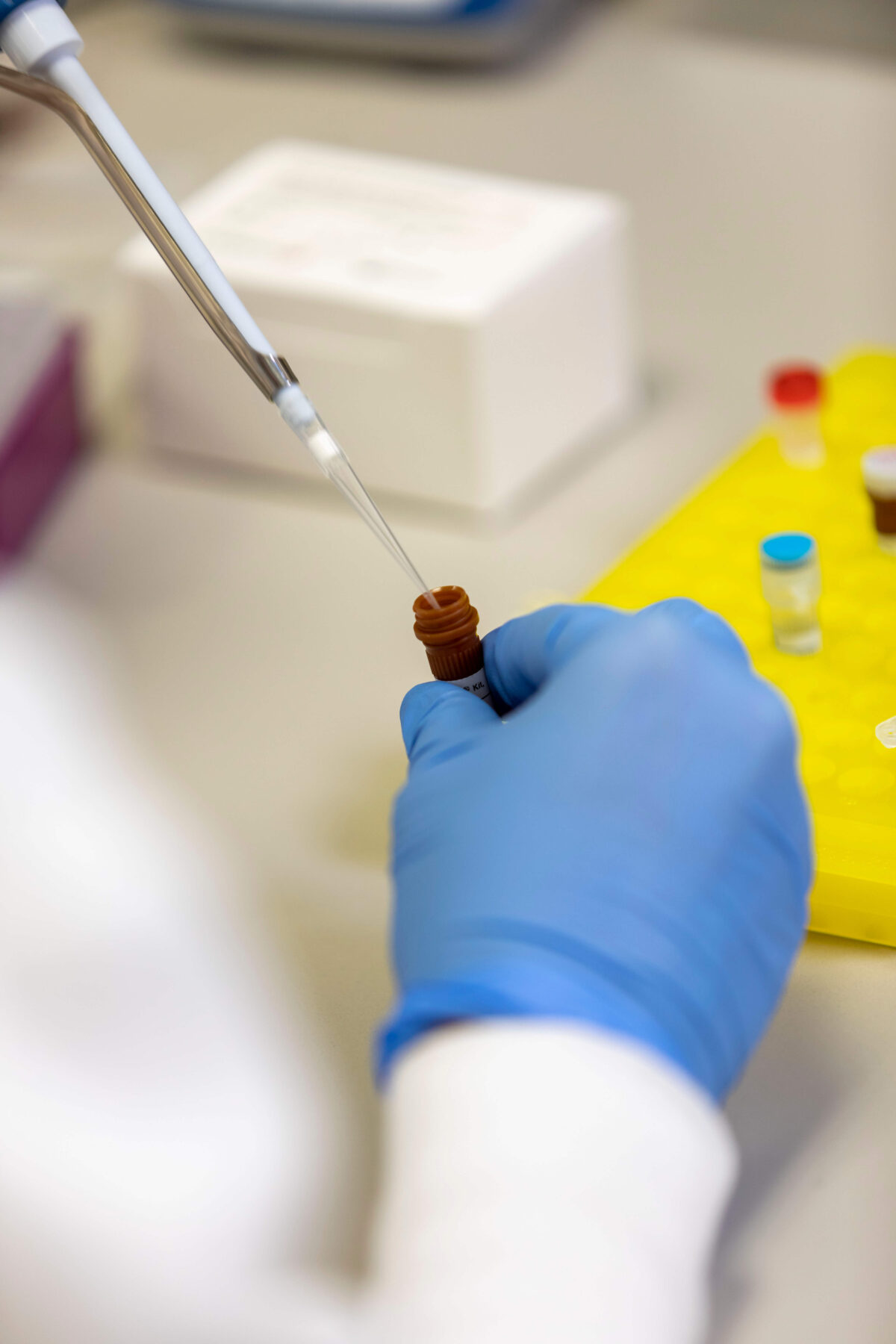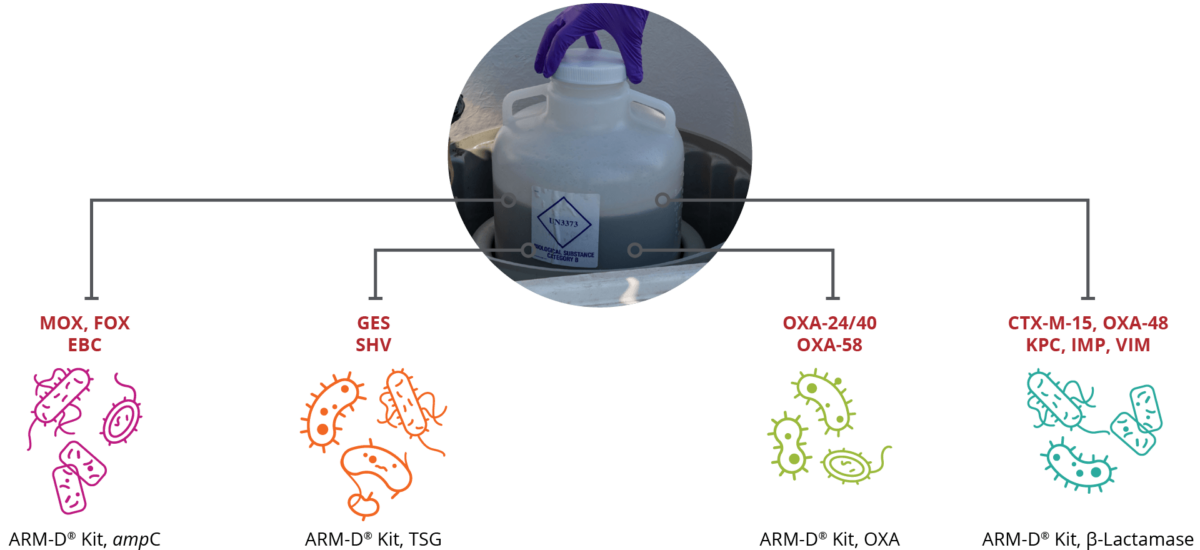Streck ARM-D® Kits for detection of antimicrobial resistance genes in wastewater samples
Chris Connelly, Ph. D., and Caroline Cambridge, MLS(ASCP)CM
The global response to COVID-19 highlighted the critical need for monitoring systems, such as the Center for Disease Control and Prevention’s National Wastewater Surveillance System launched in 2020, as a strategy to improve disease tracking and as a mechanism for future outbreak prevention. Antimicrobial resistance (AMR) is also an urgent global public health threat, killing over 1.27 million people worldwide and was associated with almost 5 million deaths in 2019.
In the CDC’s COVID-19: U.S. Impact on Antimicrobial Resistance, Special Report 2022, it was concluded that the threat of AMR-associated infections increased during the pandemic, largely due to increased antibiotic usage and COVID-19 associated hospitalizations. Prior to the impact of COVID-19, reductions in the occurrence of AMR pathogens were driven through a One Health Initiative that compelled government, academic and private organizations to improve the resources and tools to effectively improve practices for antimicrobial stewardship, epidemiologic surveillance, detection and diagnosis of AMR.
However, during the pandemic, Public Health efforts were refocused on COVID-19 testing, resulting in a data gap for AMR in communities. As efforts to track AMR in hospitals and communities resumes, some of the monitoring systems developed for COVID-19 may also be valuable for AMR surveillance, including wastewater, which is a known source of antimicrobial resistance that facilitates spread in the environment.
Additionally, adaptation of commercially available tools used for monitoring genes associated with AMR is an effective strategy to quickly identify resistant pathogens present in communities and may be important for outbreak identification. One such tool is Streck’s Antimicrobial Resistance Monitoring and Detection (ARM-D) kits. Streck ARM-D® kits are already utilized by the CDC and Public Health labs as a recommended product for AMR mechanism testing from clinical isolates. To date, the ARM-D kits have not been extensively tested for compatibility with wastewater sample processing and testing protocols.
As a proof-of-concept, this study was done to determine if the ARM-D kits successfully detect AMR mechanisms present in raw influent wastewater samples, isolated from Nebraska Wastewater Treatment Facilities. All Streck ARM-D Kits, which collectively identify over 450 allelic variants for known carbapenemases, extended-spectrum, and ampC, β-Lactamase genes, were utilized for data collection.

Results (Table 1) demonstrate positive detection of multiple AMR genes, including several on the CDC’s urgent and serious threats list (IMP, KPC, OXA-48-like, VIM). Although preliminary results, the data demonstrate AMR genes are detected in Nebraska wastewater and the ARM-D kits are effective tools for identification of AMR in communities. It’s important to note the Streck ARM-D kits are the largest commercially available panel for AMR mechanism testing ensuring detection of these critically important resistance genes present in our communities. Future studies are aimed at improving compatibility with standard wastewater processing methods and PCR-based testing protocols to develop an optimized testing workflow that supports public health initiatives aimed at monitoring and reducing the spread of AMR.
Summary of AMR genes detected in influent wastewater samples with the Streck ARM-D Kits

